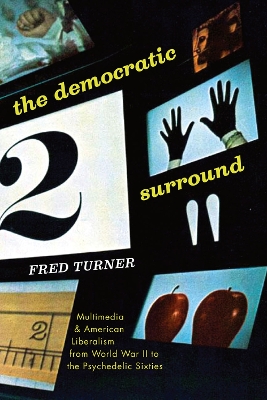We commonly think of the psychedelic '60s as an explosion of creative energy and freedom that arose in direct revolt against the early Cold War years. Yet, as Fred Turner reveals in The Democratic Surround, the decades that brought us the Korean War and communist witch hunts also witnessed an extraordinary turn toward explicitly democratic, open, and inclusive ideas of communication and with them new, flexible models of social order. Surprisingly, he shows that it was this turn that brought us the revolutionary multimedia and the wild-eyed individualism of the '60s counterculture. From the Museum of Modern Art in New York to the New Bauhaus in Chicago and Black Mountain College in North Carolina, Turner shows how some of the most well-known artists and intellectuals of the '40s developed new models of media, new theories of interpersonal and international collaboration, and new visions of an open, tolerant, and democratic self in direct contrast to the repression and conformity associated with the fascist and communist movements.
He then shows how their work shaped some of the most significant media events of the Cold War and how by the end of the '50s this vision of the democratic self and the media built to promote it would actually become part of the mainstream, even shaping American propaganda efforts in Europe. Overturning common misconceptions of these transformational years, The Democratic Surround shows that the artistic and social radicalism of the '60s grew out of the liberal ideas of Cold War America, a democratic vision that still underlies our hopes for digital media today.
- ISBN10 0226817466
- ISBN13 9780226817460
- Publish Date 4 December 2013 (first published 1 January 2013)
- Publish Status Active
- Publish Country US
- Imprint University of Chicago Press
- Format Hardcover
- Pages 376
- Language English
- URL http://wiley.com/remtitle.cgi?isbn=9780226817460
